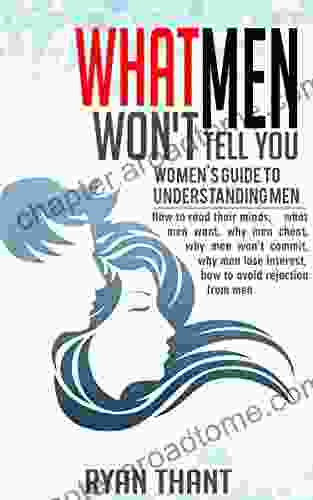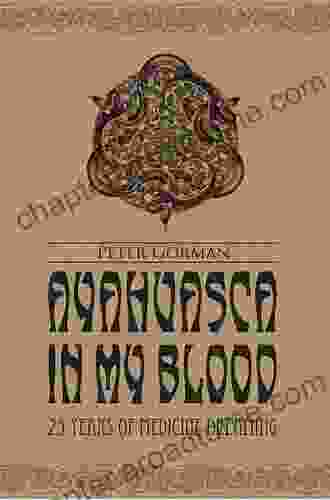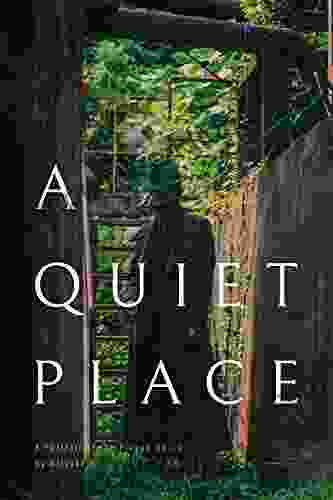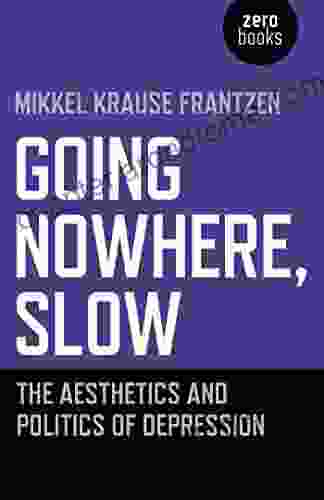The Aesthetics and Politics of Depression: A Literary Exploration

Depression, a ubiquitous yet deeply personal experience, has long captivated the imaginations of writers, artists, and thinkers. In the realm of literature, depression finds expression in a myriad of forms, from poignant prose to heart-wrenching poetry, each piece offering a unique lens through which to explore the complexities of this condition.
Aesthetics of Depression: Capturing the Unseen
Literature possesses an uncanny ability to capture the often-elusive essence of depression. Through vivid imagery and evocative language, writers paint a vivid portrait of the emotional and psychological turmoil that accompanies this condition. Virginia Woolf's iconic novel "Mrs. Dalloway" delves into the stream of consciousness of Clarissa Dalloway, a woman grappling with the depths of depression. Woolf's prose captures the fragmentation of thought, the overwhelming sense of emptiness, and the desperate longing for connection that characterize this experience.
4.7 out of 5
| Language | : | English |
| File size | : | 489 KB |
| Text-to-Speech | : | Enabled |
| Screen Reader | : | Supported |
| Enhanced typesetting | : | Enabled |
| Word Wise | : | Enabled |
| Print length | : | 239 pages |
In poetry, depression finds expression in raw and intimate verses. Sylvia Plath's poem "Daddy" unflinchingly explores the complexities of her relationship with her father and the ways in which it contributed to her own struggles with depression. Plath's use of confessional language and stark imagery lays bare the pain and anger that often accompany this condition.
Politics of Depression: Stigma and Empowerment
Beyond its aesthetic portrayal, literature also sheds light on the political dimensions of depression. Depression carries with it a deep-rooted stigma that often prevents individuals from seeking help and leads to feelings of shame and isolation. By bringing depression into the public sphere, literature challenges these stigmas and opens up conversations about mental health.
Furthermore, literature can be a powerful tool for empowerment for those living with depression. By providing a space for recognition and validation, literature can help individuals feel less alone and more understood. In her memoir "Prozac Nation," Elizabeth Wurtzel recounts her experiences with depression and the ways in which antidepressants helped her manage her condition. Wurtzel's unflinching honesty and willingness to share her story have been credited with helping to reduce the stigma surrounding mental illness.
Art as Resistance and Transformation
In addition to its aesthetic and political significance, literature can also serve as a form of resistance against the dominant narratives surrounding depression. In Toni Morrison's novel "Beloved," the character of Sethe, a former slave, embodies the resilience and strength of those who have endured unspeakable trauma. Morrison's portrayal of Sethe's struggle with depression challenges notions of passivity and victimhood that are often associated with this condition.
Literature can also offer hope and the possibility of transformation for those living with depression. In J.D. Salinger's novel "The Catcher in the Rye," the protagonist, Holden Caulfield, experiences a deep sense of alienation and despair. However, through his journey, he encounters individuals who offer him moments of connection and hope. Salinger's novel suggests that even in the darkest of times, there is always the potential for growth and redemption.
The aesthetics and politics of depression are inextricably intertwined, with literature playing a pivotal role in shaping our understanding and experience of this condition. By capturing the nuances of depression, challenging its stigma, and providing a space for empowerment and resistance, literature offers a powerful lens through which to explore the complexities of mental illness. In the words of Kay Redfield Jamison, "Depression is an ocean. Literature is a boat."
Through the works of countless writers, artists, and thinkers, we continue to deepen our understanding of depression and its multifaceted impact on individuals and society. By engaging with these works, we not only gain a deeper appreciation for the human condition but also contribute to the ongoing conversation about mental health and the ways in which we can create a more supportive and compassionate world for all.
4.7 out of 5
| Language | : | English |
| File size | : | 489 KB |
| Text-to-Speech | : | Enabled |
| Screen Reader | : | Supported |
| Enhanced typesetting | : | Enabled |
| Word Wise | : | Enabled |
| Print length | : | 239 pages |
Do you want to contribute by writing guest posts on this blog?
Please contact us and send us a resume of previous articles that you have written.
 Book
Book Novel
Novel Page
Page Chapter
Chapter Text
Text Story
Story Genre
Genre Reader
Reader Library
Library Paperback
Paperback E-book
E-book Magazine
Magazine Newspaper
Newspaper Paragraph
Paragraph Sentence
Sentence Bookmark
Bookmark Shelf
Shelf Glossary
Glossary Bibliography
Bibliography Foreword
Foreword Preface
Preface Synopsis
Synopsis Annotation
Annotation Footnote
Footnote Manuscript
Manuscript Scroll
Scroll Codex
Codex Tome
Tome Bestseller
Bestseller Classics
Classics Library card
Library card Narrative
Narrative Biography
Biography Autobiography
Autobiography Memoir
Memoir Reference
Reference Encyclopedia
Encyclopedia Nigel Mills
Nigel Mills Paul Aertker
Paul Aertker Michael Broers
Michael Broers Stanley Ruszczynski
Stanley Ruszczynski Ory Bartal
Ory Bartal Michael Thompson
Michael Thompson Thomas Dozier
Thomas Dozier Michelle Mcclain
Michelle Mcclain Michelle Sterling
Michelle Sterling Nancy Hoffman
Nancy Hoffman Monica Bellgran
Monica Bellgran Raechel Henderson
Raechel Henderson Robert Emmet Hernan
Robert Emmet Hernan Devin Hunter
Devin Hunter Michael Beach
Michael Beach Mike Mason
Mike Mason Tim Federle
Tim Federle Vee P Prasher
Vee P Prasher Nancy Hillis
Nancy Hillis Morgan Daimler
Morgan Daimler
Light bulbAdvertise smarter! Our strategic ad space ensures maximum exposure. Reserve your spot today!

 Ronald SimmonsThe Ultimate Guide to Understanding Men: How to Read Their Minds, What They...
Ronald SimmonsThe Ultimate Guide to Understanding Men: How to Read Their Minds, What They...
 Orson Scott CardAyahuasca In My Blood: A Journey into the Heart of the Amazonian Spirit World
Orson Scott CardAyahuasca In My Blood: A Journey into the Heart of the Amazonian Spirit World Tom HayesFollow ·9.4k
Tom HayesFollow ·9.4k Gabriel MistralFollow ·9.2k
Gabriel MistralFollow ·9.2k Edward BellFollow ·16.8k
Edward BellFollow ·16.8k Anton ChekhovFollow ·5.5k
Anton ChekhovFollow ·5.5k Corey GreenFollow ·12.1k
Corey GreenFollow ·12.1k Holden BellFollow ·6.7k
Holden BellFollow ·6.7k Brent FosterFollow ·19k
Brent FosterFollow ·19k Mario SimmonsFollow ·19.7k
Mario SimmonsFollow ·19.7k

 Samuel Beckett
Samuel BeckettPortrait of the Plague Doctor: A Chilling Tale of Fear...
Prologue: A...

 Elliott Carter
Elliott CarterTrends in Modeling and Simulation Studies in...
Unveiling the Convergence of...

 Natsume Sōseki
Natsume SōsekiCells For Kids: Science For Children
Unlock the Microscopic...

 Anthony Wells
Anthony WellsUnlock the Power of Understanding: Embrace the African...
Embark on a Journey of Truth,...

 Forrest Reed
Forrest ReedBreaking Free: Healing from Toxic Relationships Between...
Are you struggling...
4.7 out of 5
| Language | : | English |
| File size | : | 489 KB |
| Text-to-Speech | : | Enabled |
| Screen Reader | : | Supported |
| Enhanced typesetting | : | Enabled |
| Word Wise | : | Enabled |
| Print length | : | 239 pages |










